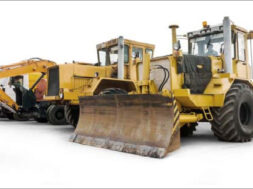Technology is playing a decisive role in the delivery methodology of FM services.
Integrated Facilities Management (IFM) is a fairly new business offering in India. Outsourcing of individual services had started in the early ‘90s, when the concept of outsourcing was introduced in the country on the back of offshored IT and IT-enabled services (ITeS). Integrated delivery of facility management (FM) services through single-point providers, on the other hand, arrived only about a decade ago. Over this decade, the FM sector has become increasingly organised.
Growth numbers
Today, the size of the organised FM services industry is pegged at around $ 7.6 billion, and has grown at 15-20 per cent over the last few years. By 2020, the sector is expected to cross $ 19.4 billion.
Growth drivers
The key growth drivers for the sector have been:
• Changes in the economy and economy-impacting policies
• The increased presence of global industries in India
• Increased adoption of FM outsourcing
• Growth of certain sectors like retail, hospitality, industrial and healthcare.
The maturity level if IFM varies across sectors and the levels of outsourcing of IFM vary significantly within and between different Industry sectors. For example global IT and ITeS companies with large footprints in India have fairly mature FM outsourcing models, while others are still evolving towards full-fledged IFM adoption
How the FM sector has evolved
Expectations from service providers vary, depending for example on whether they are multi-national companies or local cleaning firms. However, an increasing shift in client conversations has been noted. Today, discussions often centre around concepts such employee experience and engagement, employee health and safety, smart and sustainable workspaces, and business continuity assurance.
Technology is playing a decisive role in the delivery methodology of FM services, affording a more responsive and efficient experience to the users of such services. Maintenance management and work order management technology platforms are finding a permanent place in mature IFM contracting models. Others that are forming a part of IFM delivery are tools for financial management, benchmarking, energy management, space planning, lease management, etc. These are being offered as individual or as integrated solutions by service providers.
Apart from the standard delivery bouquet, sustainability initiatives that focus on energy and water conservation and thereby reducing the cost and carbon outcome of business operations attributable to management of real estate are now being offered as part of IFM contracting models.
Employment growth in the FM sector
FM in a lot of ways mirrors the growth trajectory of the IT and ITeS sector, with very similar talent demands as well as talent-related challenges. There is a minimum year-on-year additional manpower demand of about 14 per cent. If one adds an approximate attrition rate of 25 per cent to this, the minimum employability opportunity is 39 per cent at a principle employer level. At a sub-contractor level there is a similar demand.
————–
Authored by__
Sandeep Sethi, Managing Director – Integrated Facilities Management, JLL (West Asia)
Cookie Consent
We use cookies to personalize your experience. By continuing to visit this website you agree to our Terms & Conditions, Privacy Policy and Cookie Policy.









